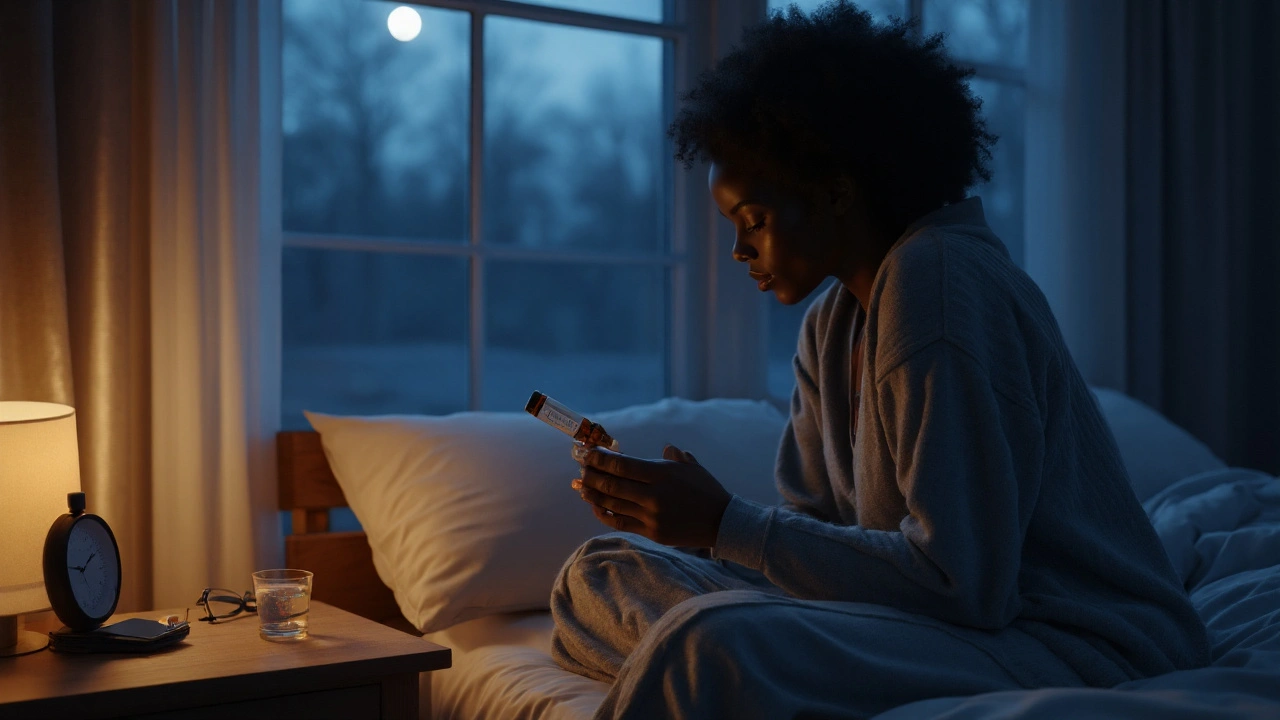Insomnia Relief: Easy Ways to Get Better Sleep Tonight
If you’re tossing and turning, you’re not alone. Millions struggle to fall asleep, stay asleep, or wake up feeling rested. The good news? Most sleep problems can be eased with a few everyday changes. Below are real‑world tips that work for busy people, plus a quick guide on when you might need a doctor‑prescribed aid.
Quick Lifestyle Fixes
Start with your bedtime routine. Turn off bright screens at least 30 minutes before you plan to sleep – the blue light tricks your brain into thinking it’s still daytime. Dim the lights, read a paperback, or listen to calm music. A consistent sleep window (going to bed and waking up at the same hour every day) trains your internal clock, making it easier to drift off.
Temperature matters, too. A cool room (around 65°F or 18°C) tells your body it’s time to rest. If you’re a night‑owl, try a brief 20‑minute walk after dinner; the light exercise boosts circulation without raising adrenaline levels.
Natural Aids That Actually Help
Herbal options like chamomile tea or valerian root are popular for a reason. A cup of caffeine‑free tea 30 minutes before bed can calm nerves without causing a groggy morning.
Magnesium supplements support muscle relaxation, but only take the recommended dose – excess can cause stomach upset. If you prefer a scent, lavender essential oil on your pillow can improve sleep quality for many people.
Limit alcohol and nicotine in the evening. While alcohol may make you drowsy, it disrupts the later stages of sleep, leaving you feeling unrefreshed.
When Lifestyle Isn’t Enough: Medication Basics
If you’ve tried the above tricks for a couple of weeks and still can’t sleep, it’s time to talk to a healthcare provider. Prescription sleep aids (like zolpidem or temazepam) are effective for short‑term use but can cause dependence if taken longer than a few weeks.
Over‑the‑counter options such as diphenhydramine (found in many nighttime pain relievers) provide occasional relief, but they may leave you groggy the next day. Always read the label and avoid combining multiple sedating products.
For chronic insomnia, doctors may recommend a low‑dose antidepressant (like trazodone) or a melatonin supplement. Melatonin mimics the body’s natural sleep hormone and is safest when taken 30 minutes before bedtime in a 0.5‑3 mg dose.
Putting It All Together
Start small: pick one habit – like shutting off screens early – and stick with it for a week. Add a second habit, such as a nightly tea, and watch how your sleep improves. If you still wake up exhausted after a month, schedule a brief visit with your doctor to explore safe medication options.
Good sleep isn’t a luxury; it’s a cornerstone of health. By tweaking your environment, using gentle natural aids, and knowing when to seek medical help, you can turn restless nights into refreshing rest. Sweet dreams are within reach – you just need to take the first step tonight.
-
 VIEW POST
VIEW POSTMelatonin for Insomnia: Safe Doses, Timing, and Tips That Actually Work (2025 Guide)
Sep, 2 2025|20 CommentsStruggling to sleep? Learn when melatonin helps, the right dose and timing, who should avoid it, and smart safety tips. Evidence-backed, clear, and practical.